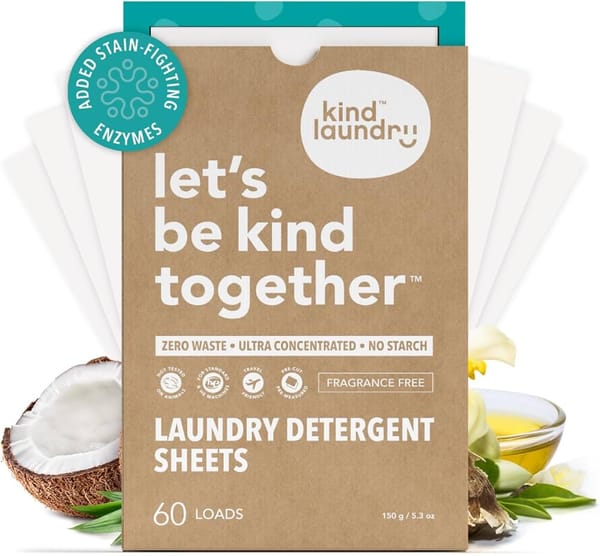10 Simple Ways to Reduce Plastic Waste in Your Kitchen

Plastic pollution is one of the most pressing environmental challenges of our time. In the UK alone, households produce over 1.5 million tonnes of plastic waste annually, much of it originating from our kitchens. This plastic not only pollutes our land and waterways but also breaks down into microplastics, which have been found in human organs, including the brain, raising concerns about potential health impacts.
The good news is that reducing plastic waste in your kitchen doesn't require a complete lifestyle overhaul. By making a few mindful changes, you can significantly cut down on plastic use, protect your health, and contribute to a more sustainable planet.
Ditch Single Use Plastic Wraps
Plastic wraps are a staple in many kitchens, but they're non-recyclable and contribute significantly to plastic pollution. Alternatives like beeswax wraps offer a sustainable solution. Made by infusing cotton with beeswax, these wraps are reusable, compostable, and naturally antibacterial, helping to keep your food fresh without the plastic waste.
Embrace Reusable Storage Solutions
Single-use plastic bags and containers are convenient but environmentally damaging. Switching to reusable options like silicone bags and stainless steel containers can make a big difference. Silicone bags are durable and versatile, while stainless steel containers are long-lasting and free from harmful chemicals like BPA.
Opt for Glass Over Plastic
Glass containers are an excellent alternative to plastic for food storage. They're non-toxic, don't leach chemicals, and are fully recyclable. Using glass jars for storing dry goods or leftovers not only reduces plastic use but also keeps your food safer and fresher.
Choose Sustainable Kitchen Tools
Many kitchen tools are made from plastic, but there are eco-friendly alternatives available. Bamboo cutting boards, for example, are durable and biodegradable. Stainless steel utensils and olivewood spoons are also excellent choices, offering longevity and reducing plastic waste.
Avoid Microwaving in Plastic
Heating food in plastic containers can cause harmful chemicals to leach into your meals. Opt for microwave-safe glass or ceramic dishes instead. This simple change can reduce your exposure to microplastics and other toxins.
Shop Smart: Buy in Bulk and Bring Your Own Bags
Buying in bulk reduces packaging waste, and bringing your own reusable bags further cuts down on plastic use. Many stores now offer bulk sections for grains, nuts, and spices. Using cloth produce bags and tote bags can prevent hundreds of plastic bags from entering the waste stream each year.
Switch to Solid Dish Soaps and Refillable Cleaners
Traditional dish soaps often come in plastic bottles. Solid dish soaps and refillable cleaning products are effective alternatives that reduce plastic waste. Brands like Ocean Saver offer concentrated cleaning refills that can be mixed with water in reusable bottles, cutting down on single-use plastics.
Use Cloth Instead of Paper Towels
Paper towels are often packaged in plastic and contribute to deforestation. Switching to cloth towels or reusable bamboo towels can significantly reduce waste. These alternatives are washable, durable, and more absorbent, making them a practical choice for any kitchen.
Refill Instead of Rebuy
The Refill campaign in the UK encourages people to use refill stations for water and other products, reducing the need for single-use plastic bottles. By carrying a reusable water bottle and utilizing refill stations, you can decrease plastic waste and promote sustainable habits.
Plan Meals to Reduce Waste
Meal planning helps you buy only what you need, reducing both food and packaging waste. By creating a shopping list and sticking to it, you can avoid impulse purchases that often come in plastic packaging. This approach not only minimizes waste but also saves money.
Start By Making Small Changes
Reducing plastic waste in your kitchen is a journey of small, intentional steps. By adopting these practices, you not only contribute to a healthier planet but also create a safer and more sustainable environment in your home. Every choice matters, and collectively, our actions can lead to significant change.



